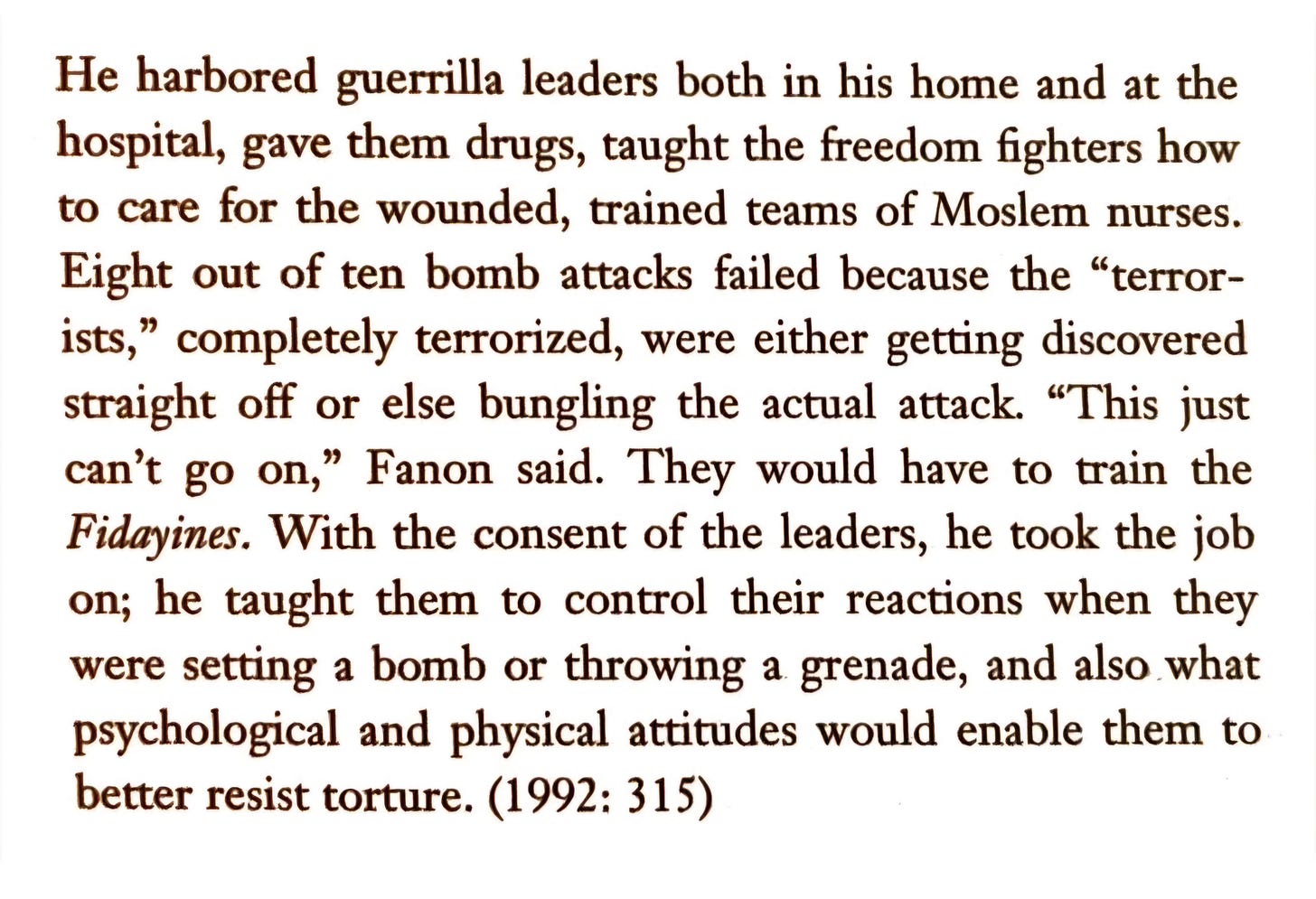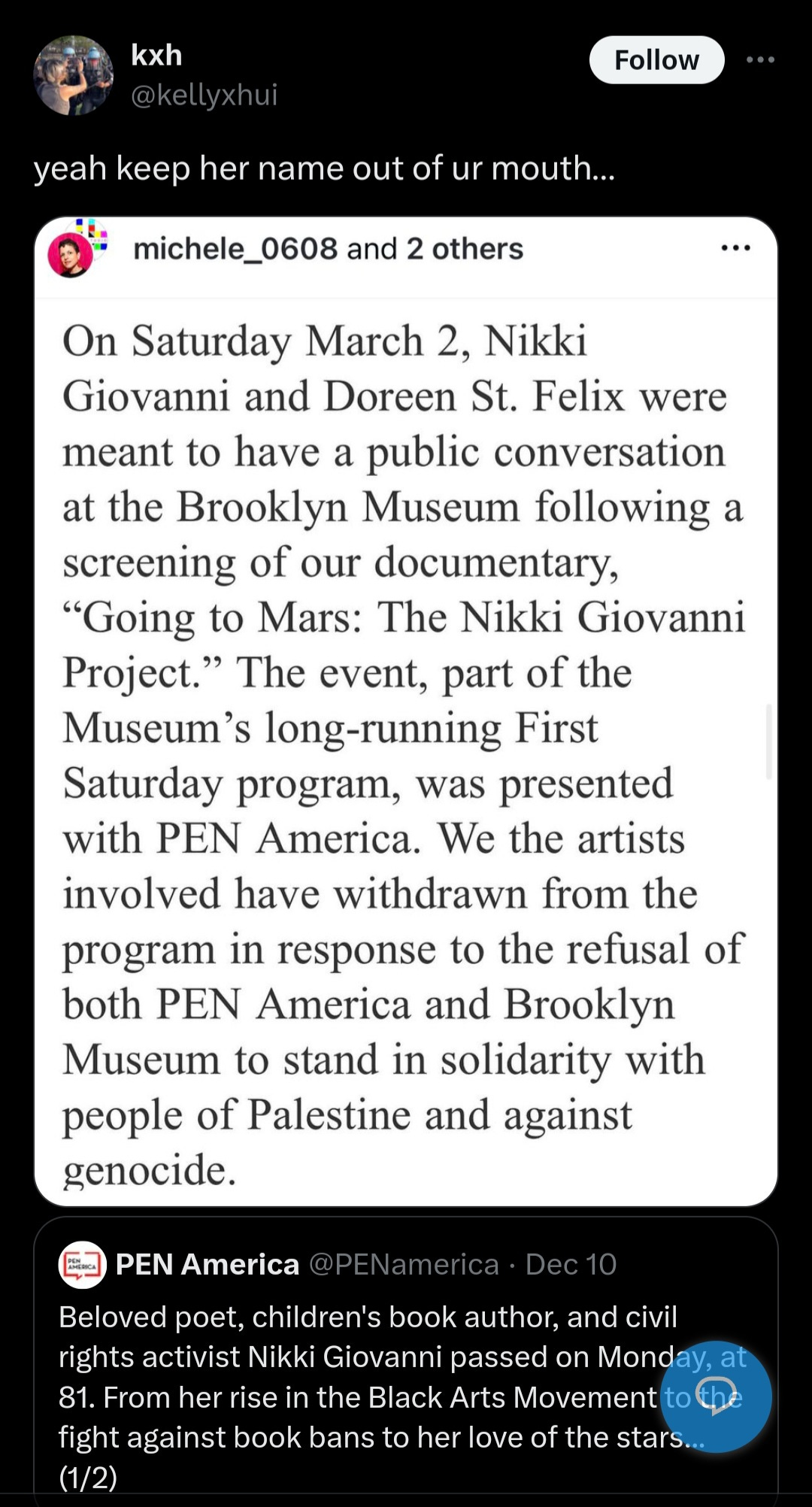On Violence and The Wretched of the Earth
"No Mercy"
We've been surrounded by violence in the past 20 months. It's impossible to get away from if you are in the Middle East or Africa or addicted to social media.
I try to avert my eyes when I doom scroll. It rarely brings relief because every other post, at least on my twitter and Instagram timeline is of headless children, burning ambulances, blood-stained mothers and shell-shocked fathers. It's unbearable.
I thought seeing images and videos of dead limbless children would be the most horrific thing I could see.
I now realise that seeing babies and children covered in third degree burns, crying in agony whilst being consoled by an inanimate toy because their entire family has been killed is worse.
Well done to the butchers of Israel for pushing the boundaries of our horrifying imagination every single day.
~ Dr. Sabreena Ghaffar-Siddiqui
I am luckier than some, certainly more so than Palestinians and the Sudanese who are attempting to survive a genocide. My attention issues keep me from dwelling on every single burned body and mass grave.
My mind can't stay still, which has given me the opportunity to re-acquaint myself with the work of Frantz Fanon and Mark Twain.
Fanon died on 6 December 1961, aged 36. One of the most famed/infamous quotes in his final book ‘The Wretched of the Earth’ started to do the rounds on social media on the anniversary of his death,
…colonialism is not a thinking machine, nor a body endowed with reasoning faculties. It is violence in its natural state, and it will only yield when confronted with greater violence.
- The Wretched of the Earth, Ch 1, “Concerning Violence”, p. 48
But it was how he lived his life that intrigues me.
In her autobiography, Simone de Beauvoir wrote about Fanon’s role in helping the FLN in the Algerian liberation struggle between 1955-56:
He didn't just talk the talk, he walked the walk and as a doctor, instilled a resilience in fighters that probably stayed with everyone he taught long into old age, if they managed to survive the war.
A far cry from the Israeli doctors who have been implicated in the torture and murder of arbitrarily detained Palestinians.

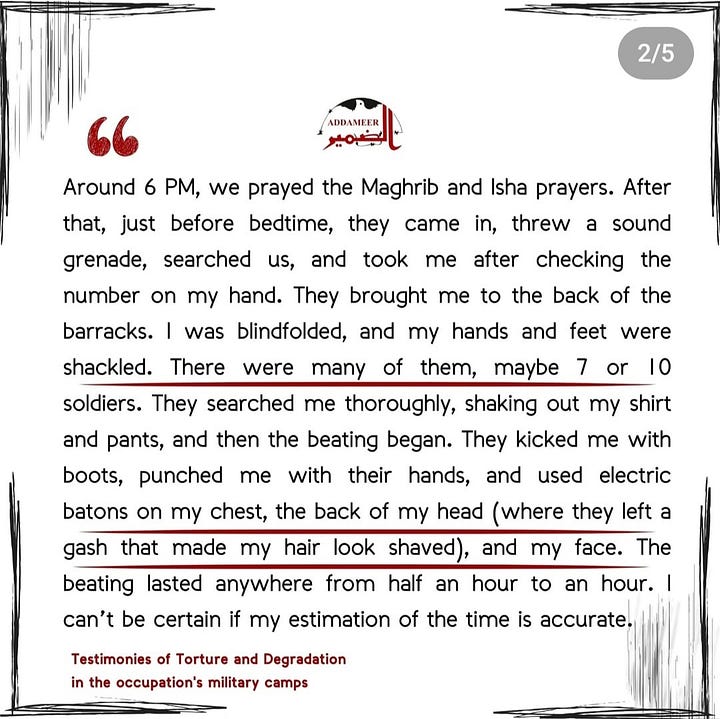
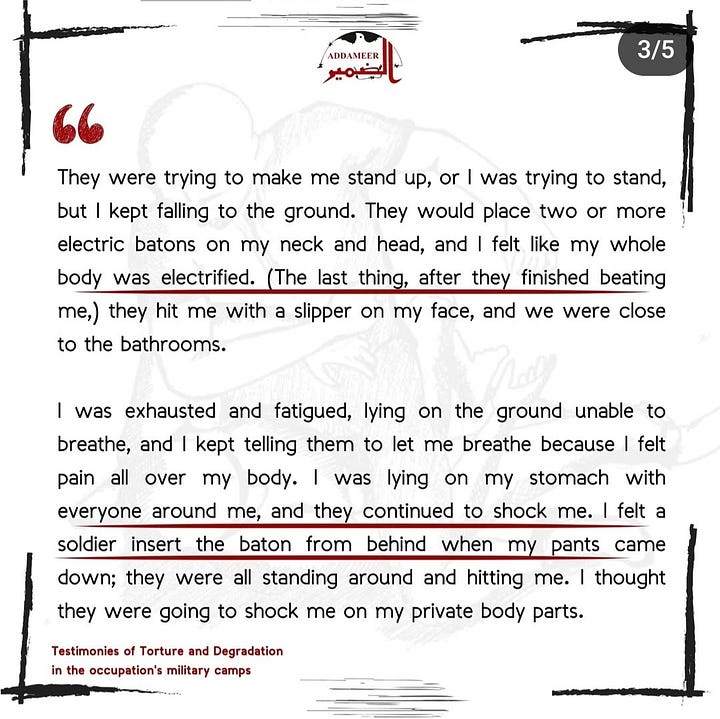
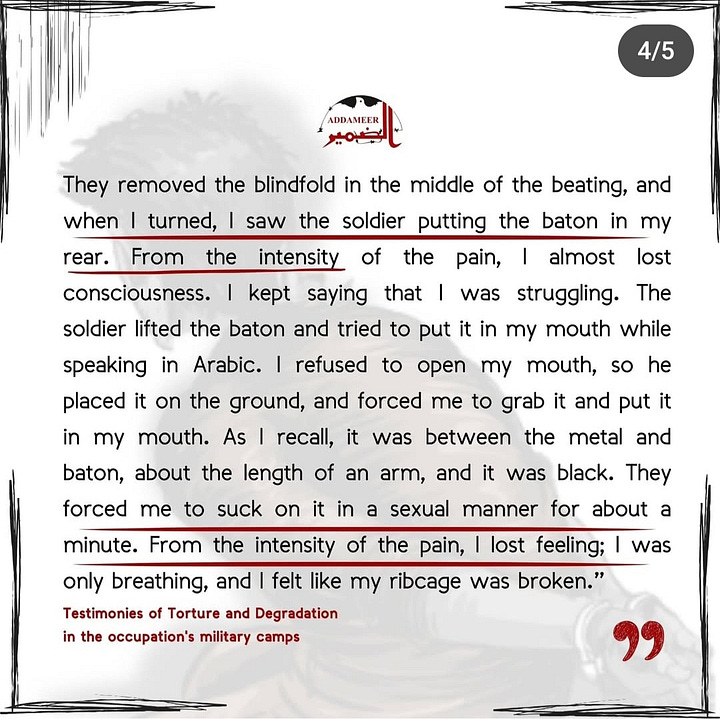
Most writers worth their salt write about violence in one way or another. Mark Twain wrote this about the French revolution..
..what is the horror of swift death by the axe, compared with lifelong death from hunger, cold, insult, cruelty, and heart-break? What is swift death by lightning compared with death by slow fire at the stake?
A city cemetery could contain the coffins filled by that brief Terror which we have all been so diligently taught to shiver at and mourn over; but all France could hardly contain the coffins filled by that older and real Terror—that unspeakably bitter and awful Terror which none of us has been taught to see in its vastness or pity as it deserves.
- Mark Twain, A Connecticut Yankee in King Arthur's Court
But it was the writing of poet, author snd educator, Nikki Giovanni that has struck me the most recently.
(Upgrade your subscription, so I can pay my bills)
She was a writer who was circumspect with words. In her poems she rarely uses words with more than two syllables. Truth stripped bare to its vowels and consonants, accessible to all.
Perhaps Charles Mingus was thinking of her when he said,
“Creativity is more than just being different. Anybody can plan weird; that's easy. What's hard is to be as simple as Bach. Making the simple, awesomely simple, that's creativity.”
There was an outpouring of grief and a celebration or her life upon news of her death, (amongst black women anyway).
People posted her poems and quotes on instagram and twitter and probably elsewhere.
Many of the poems they posted were about love and sex. I was most interested in her poems about violence. A revolutionary violence, that harks back to the legacy of Frantz Fanon, Nelson Mandela and others.
so i thought again
and it occurred to me
maybe i shouldn't write
at all
but clean my gun
and check my kerosene supply
perhaps these are not poetic
times
at all
~ Nikki Giovanni
(excerpt from the last stanza of For Saundra)
It's a slow burn poem that ends with a quiet roar.
I, too, have felt enraged of late. Enraged by what Israel is doing in Gaza. Enraged by what the Rapid Support Forces (RSF) are doing in Sudan. Few people know about the latter. That’s enraging, too.
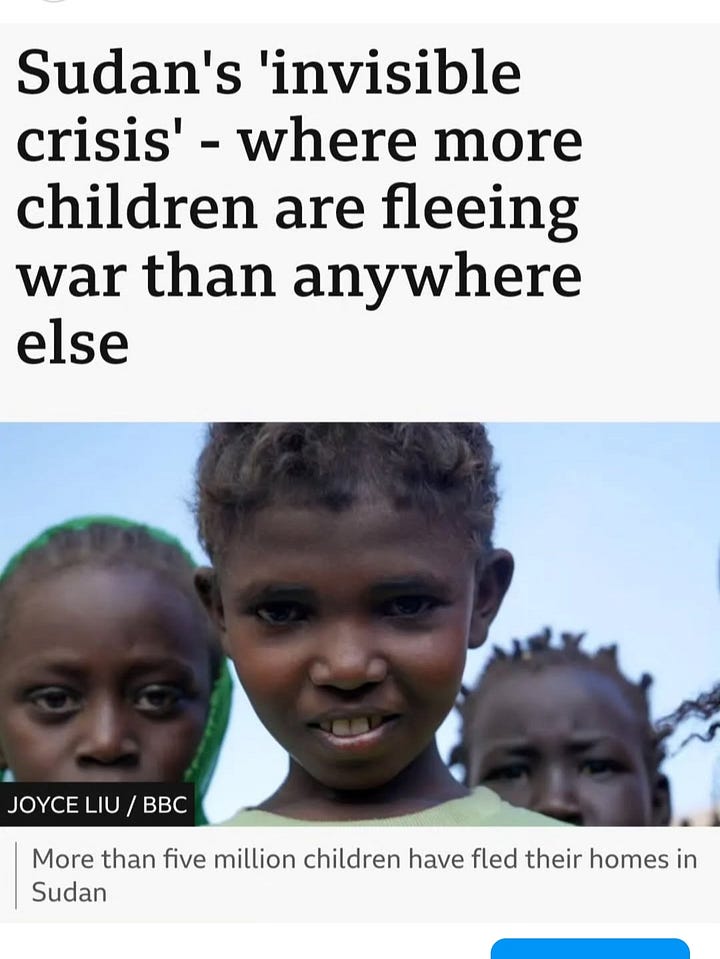

“It’s an invisible crisis. Twenty-five million Sudanese, more than half the country, need help now."
- The Under-Secretary-General for Humanitarian Affairs and Emergency Relief Coordinator
Sky's Africa correspondent, Yousra Elbagir has been on the ground there. She reported that, ‘the horror of sexual violence in Sudan's conflict is ongoing and spreading. A war waged on the bodies of women and girls by a militia hell-bent on conquering the country at every level.’

Sexual exploitation during large humanitarian crises is not uncommon, especially in displacement sites.
There were ‘reports of women killing themselves to avoid rape circulating online as the RSF ambushed town after town in eastern Al Jazira.’
She interviewed a woman there that said,
"I know 36 women my age who have been raped, sexually harassed and beaten,
As people fled the village, some girls jumped into the Nile to commit suicide - I know four of them personally.
‘Survivors have testified girls as young as 11 were raped by the Rapid Support Forces militia in Sudan, with some victims taking their own lives as a result of the violence.’
Only this week, a shell hit a passenger bus and “killed everyone on board and turned 22 people into body parts.”
I watched the report and read Yousra’s article and thought maybe words are just not enough when the situation is unbearable. Just as Nikki Giovanni intimated in her poem For Saundra.
Whilst it was mostly black women posting her poems and the infamous chat between her and James Baldwin (which I highly recommend) Some men did too. That also enraged me.
Men and some women who treat black women like dirt in real life have no right to celebrate us in death. I think Nikki thought so too:
when I die I hope no one who ever hurt me cries
and if they cry I hope their eyes fall out
and a million maggots that had made up their brains
crawl from the empty holes and devour the flesh
that covered the evil that passed itself off as a person
that I probably tried
to love
(excerpt from When I Die by Nikki Giovanni)
So when I die, I don't want any words of praise from people who wouldn't have spat on me if I was on fire, when alive.
In fact if one person who was a terror to me here on earth, says a laudatory word about me when I die, I will come back and haunt them until THEY die. Then find them in the afterlife and haunt them some more. To paraphrase Nikki, they can get fucked.

The Israeli settlers who are already making plans to build homes on the broken bodies and ashes of Palestinians in Gaza and the ethnically cleansed towns of Syria will be haunted. I guarantee it.
For example these Orthodox Jews are studying the Sefer HaTanya in front of a Chabad house in the village of Hader in the stolen Hashan area of Syria. Video Translation: “This is our entire country! Conquer and settle!!”
Whilst not a single punch may be thrown or a bullet shot at them in this life, the fires of hell await them in the next life.
In 2022, they hunted down a 97 year old woman to punish her for Nazi crimes. She was 18 when she worked as a secretary at a concentration camp.
A man whose father was executed at the camp said that even if she only sat in the office, she was guilty.
All these war criminals, these grinning IDF guys sniping children, killing people in the streets, bombing entire buildings, bulldozer drivers, hateful women, openly calling to kill all Palestinians - I can't wait to see them hunted down and come face to face with consequences.
No mercy: all who played any role in genocide must pay. Every single one, no matter how "traumatized" or how sad. Every woman who blocked aid trucks. Every youth who attacked shepherds. Every single one of them. For every single life and every single loss.
God does not forget.
~ Professor Shabana Mir
I've been angry, frustrated and grief stricken for the past year, because of the IPP prisoners who have died like Haydar Jeffries and Josh Mcrae, because of Gaza, Lebanon, Sudan and Syria and it's turned to hatred, so much so I want to tear my own face off.
It's unbearable.
A new study and needs assessment of children carried out by a Gaza-based NGO sponsored by the War Child Alliance charity found that:
- 96% of children feel that their death is imminent.
- 49% of children want to die as a result of trauma
- 92% of the children were “not accepting of reality”
- 79% suffer from nightmares
- 73% exhibit symptoms of aggression.
It is unbearable.
- More than journalists and their families have been targeted and killed
- Over 1000 healthcare workers have been killed, many of them tortured and raped before
- More than 20,000 children are missing
- The last orthopedic surgeon in Northern Gaza was killed by a sniper this week.
That's unbearable too.
It's all been actively supported by the UK government and it's all unbearable.
Airwars, the civilian harm watchdog attempted to find out how the scale of harm in Gaza compares to other conflicts.
Their report presents an analysis of where and how thousands of civilians were killed in the first 25 days in Gaza - and how these patterns are unprecedented in modern warfare.
By almost every metric, the harm to civilians from the first month of the Israeli campaign in Gaza is incomparable with any 21st century air campaign. It is by far the most intense, destructive, and fatal conflict for civilians that Airwars has ever documented.
So I attempt to harness my anger and grief and heed the call of the Palestine Workers Trade Union after 365 days of this genocide.
“There is no safe place in Gaza. We need you to rise to this moment in history, and move beyond statements. Be brave, take risks, and act with the urgency that Israel’s genocide demands.”
I don't have a gun or kerosene but I wrote to my union. Have you?
One of the last things Nikki Giovanni did this year publicly is call off her talk hosted by Pen America, who have failed despite numerous entreaties to give a public stance on Israel's genocide.
Cowards. And in death, hypocrites.
The Palestinian poet, Mosab Abu Tohab says that Israel, ‘..will not stop because they need someone to stop them.’
So again I turn to Frantz Fanon,
For the native, life can only spring up again out of the rotting corpse of the settler.
- The Wretched of the Earth, Ch 1, “Concerning Violence”, p. 73
So what can you do about all this horror? Donate to Khartoum Kitchen Aid
Donate to a campaign at Sudan Funds
Donate to a campaign at Gaza Funds
Book a Workshop for Gaza
Support Translating Falasteen x The Sameer Project Campaign
…and urge your union to take strike action. Examples of what you could organise here



